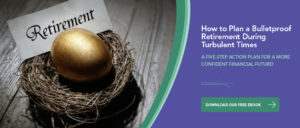It’s Tax-Loss Harvest Season
Happy Thanksgiving! I hope your holiday is meaningful, safe and happy. However—with an appreciation for the beloved November holiday—there is another, less celebrated time that we can recognize this year, as well.
It is not just harvest season; it’s tax-loss harvest season. In times when even the affluent can be at risk of losing wealth to inflation, that’s a good thing.
This article explains these topics:
- Tax-loss harvesting: what is it & how does it work?
- Even the affluent need help preserving wealth during inflation
- How does a tax-loss harvest help lower your tax bill?
- Heritage Capital, LLC: low-pressure, high value
Tax-Loss Harvesting: What Is It & How Does It Work?
In plain English, harvesting a tax loss means selling off securities at a loss. This is done deliberately—to offset gains (profits) realized from selling other assets. When it is timed well, the loss lowers the amount of capital gains taxes you pay on those gains. You wind up liable (owing the IRS) only for your net profit, tax-wise.
In other words, you only have to pay capital taxes on your gains minus the losses. This results in a smaller bill for the taxes than you’d wind up paying otherwise. It might not be as exciting as post-turkey football, but (especially during market volatility) it can help mitigate the impacts of inflation and market volatility.
Additionally, if you harvest tax losses without the capital gains to offset, those losses are able to be carried forward to future tax years. And you never lose them until you have enough realized capital gains to cover the losses. Neat huh?
If you’re thinking, “I have plenty of money. Why should I care about inflation?” please have a look at the answers below.
Even the Affluent Need Help Preserving Wealth During Inflation
It’s an easy mistake to make: When you’ve got everything you need at your fingertips, it seems only natural to assume that things will always be that way. Especially if you grew up within an affluent family, it may have seemed like something seemingly as ever-present as furniture around the house.
In all fairness, during calmer economic times, you probably could take it all for granted with little, if any, drawbacks. However, these times are extremely different: Inflation is a massive factor in both the global and U.S. economies today. Unfortunately, it isn’t going away overnight, either.
Even the very wealthy eventually feel inflation’s pinch—because it shrinks the value of your money. For example, let’s say that you have $3 million in an account: That’s not bad today, but in 2023, the very same amount of money might only buy what $2.75 million could purchase today. This is a fictional illustration, not a prediction, but you get the idea. Inflation reduces your purchasing power.
The ugly truth is that financial independence today does not guarantee the same freedom and comfort tomorrow if you don’t use financial planning to preserve your wealth. Especially if you plan on a high net worth retirement, it’s important to keep this in mind. Enjoying a luxurious lifestyle now is not always a reliable indicator of what you’ll be able to afford as a retiree.
Paul Has a Growing Library of Videos Here on Various Saving & Investing Topics for You
How Does a Tax-Loss Harvest Help Lower Your Tax Bill?
 High-net-worth individuals approach retirement with a unique set of challenges. Not only do you need to account for a potentially longer life expectancy—but you also need to navigate the complex rules around taxes and asset distribution. These are part of what makes tax loss harvesting such a great potential tool for wealth preservation.
High-net-worth individuals approach retirement with a unique set of challenges. Not only do you need to account for a potentially longer life expectancy—but you also need to navigate the complex rules around taxes and asset distribution. These are part of what makes tax loss harvesting such a great potential tool for wealth preservation.
To give you a better idea of how it works, please imagine that you have a long position; 500 shares of StaffSupply, a (fictional) maker of high-tech designer walking sticks for hikers, in your portfolio. They looked great in 2019: Demand was growing so fast monthly that it seemed like there was no way they could lose…
And then 2020 rolled around—and the COVID crisis hit: People isolated themselves, canceling the vacations they would’ve wanted a top-of-the-line walking stick for. Worse still, supply chain issues struck, severing their production lines from chips for their built-in smart compasses and the company it may take years to sort this all out. StaffSupply’s shooting star had cratered and the stock was a fraction of its value in 2022.
In theory, they might be back on their feet one day. But it certainly looks like dead money for years to come. And their shares are barely worth more than the paper the old certificates used to be printed on. Ordinarily, investors might pull their hair out over this, but—just in time for Thanksgiving and tax loss harvesting season—we can utilize this turkey of an asset.
Selling now, at a fraction of what you paid for it, will mean taking a huge loss. That’s normally the last thing you’d want to do. Under other circumstances, it might even be wisest to give the asset months or even a year to bounce back before committing to taking this one square on the chin.
Again, this is an unusual time. Especially if you have an asset that’s done particularly well (so well, in fact, that the sale will net you hundreds of thousands of dollars or more in profits), we need a turkey stock to sell: Capital gains tax rates will take a substantial bite out of those profits.
However, now that you can list the losses on the StaffSupply shares you sell, you will get a certain amount of breathing room that can apply to your annual income tax, shrinking the size of the capital gains bite. As a result, more of your profits survive unscathed.
By carefully managing your asset allocation this way, it is possible to make it easier for you to keep more of your money for your retirement savings (and your family’s nest egg). This strategy can get complex at times, so it’s important to work with a financial advisor who can ensure that you stay compliant with the IRS’s rules.
Heritage Capital, LLC: Low Pressure, High Value
A tax-loss harvest can be an invaluable tool for helping to preserve your wealth now and working to ensure a comfortable future retirement. It’s also only one of several wealth management techniques the Heritage Capital, LLC team and I have at our disposal. We want to help you retire with confidence in Woodbridge, Connecticut, or wherever you would prefer.
That’s part of the reason why I recently added Accredited Investment Fiduciary® (AIF®) to my list of certifications. Contact us or schedule a free consultation to learn more.


